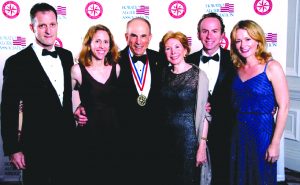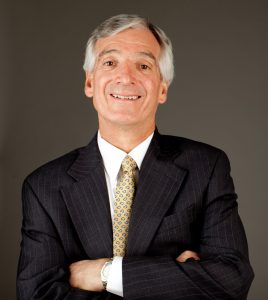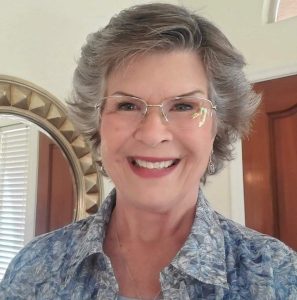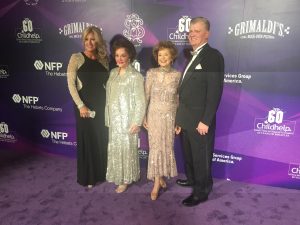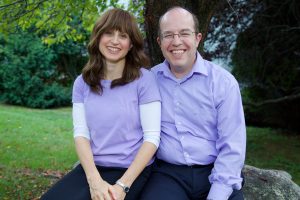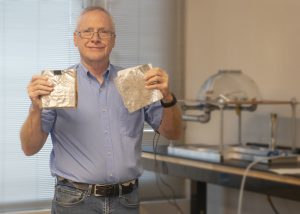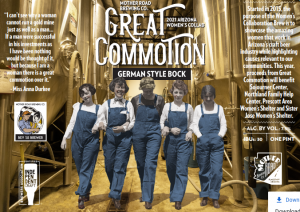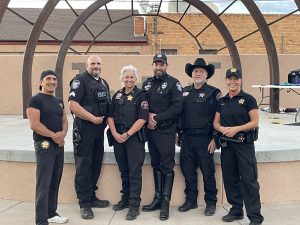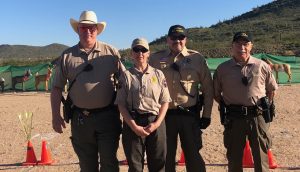How two best friends are enduring deep grief and what they want others to know.
TAYLOR’S STORY
As Taylor looks back over her past, she sees how chaos has long played a role. “Growing up, there were a lot of things going on in the household, addiction and behaviors that made it very hard to navigate day to day,” she said.
Feeling responsible for creating a stable life for herself and her younger sister, Taylor began earning money at a young age. She moved out of the house at 18 and was managing a salon and more than 30 employees. Her plan was to move her sister in with her when she graduated from high school.
“Unfortunately, it all came to a very tragic end in May of 2021. My mom passed away suddenly. That was the worst day of my life. She had cancer when I was younger, but I think ultimately, the addiction to alcohol did catch up to her and unfortunately did play a part in her death, right before my 21st birthday. It was even more chaotic after that. My dad was having a really hard time and he ended up passing away a year-and-a-half later,” said Taylor.
Megan recalls how difficult it was for her to see her close friend lose her mom and dad. “It was such a shock to everyone and at the time I hadn’t experienced grief in my life, so it was difficult for me to know how to show up for someone, especially someone who had two extreme losses in their life, like their parents. It was very difficult knowing there was nothing I could do to help her make the pain go away.”
MEGAN’S STORY
Meanwhile, Megan’s life was starting to unravel. The boy she had known since preschool and was planning to marry was now struggling with serious lingering effects of head injuries.
“He was a hockey goalie and suffered many concussions and brain injuries,” she said. “He was one of the best people that I had ever encountered in my life and it was really difficult to watch him go through that. He didn’t deserve the pain that he went through every day – constant headaches, migraines and ringing in his ears. It wasn’t a great quality of life to be constantly in pain.”
Hypnotherapist and former Phoenix-area high school nurse Rosemary Powell has witnessed the debilitating effects of head injuries on young people. “I had students who had brain injuries. They couldn’t think straight, they couldn’t focus, they couldn’t do simple tasks. And if they were without a headache for a while, it would come back if they did anything on a screen or with a particular subject, like math. And it shattered their future.”
Megan’s boyfriend died last July, just as she was preparing for the new school year and a classroom of fourth graders. She called Taylor.
SHOWING UP
“When she called me, I was like, ‘I’ll be there in 10 minutes,’” said Taylor. “I just came right over because I know what it’s like and you just want people to show up for you. I knew in that moment that I was going to continue to do that for Megan, forever. It made us closer, I think, because there are not many people in our circle or people that we know who have ever gone through anything like this. So, having each other to rely on and talk to is super important. I just love her.”
“Taylor’s my girl. I love her so much,” said Megan. “I truly don’t know if I would be here without her. Grief is something you can’t even begin to explain to someone who hasn’t experienced it. So, to have someone by my side who knew exactly what I was feeling and what I was going through was so beneficial to me in my grief experience. She would show up any time I asked. She reached out to me every single day and never abandoned me throughout this entire grief journey that I’ve been on this past year.”
Megan and Taylor say being there for each other is vitally important. “It’s a weird thing. It’s almost like people are looking at you like you’re an exhibit in a museum, thinking, ‘Do I touch them?’ They don’t really know what to say,” said Taylor. “You don’t have to say the right thing or say anything at all. Just continue to show up.”
“And that’s the thing. Words won’t help,” added Megan. “Nothing that anyone says will take away the pain – no meals that are brought, no gift baskets. Nothing’s going to take away the pain except showing up and just hanging out and having a normal day with your friend.”
“Megan and Taylor are so wise,” said Powell. “Being present, even if you can’t find the right words. Just show up and be with those who are grieving. Do something odd or fun, send them a cute note or message, just be there and don’t wait for them to reach out to you.”
SEEKING SUPPORT
“When Megan’s boyfriend died, being there for her also made me show up for myself,” said Taylor. “Everything that I wanted her to do, I knew I’d have to do for myself or I’d be a hypocrite.”
They both took time away from work to heal. They both sought counseling and through Megan’s insistence, they have been attending a grief support group. They also continue to work through what therapists call “secondary loss,” grieving not just for today but for the future – the parents who won’t be there at important milestones or the man who was supposed to help build a life.
“Grief needs compassion and kindness always. There may be a day that you just cocoon and be with yourself and honor the time to grieve that loss,” said Powell. “Professional help with someone you really connect with also makes a big difference. Releasing any guilt or self-responsibility for what happened is essential. It happened. It simply was.”
“I’ve learned to pivot, to turn the negatives into positives,” said Taylor. “Instead of dreading Mother’s Day because my mother’s gone, I now think of how blessed I am to have had what I had.”
REGAINING JOY
Taylor is a self-taught guitarist, pianist and singer/songwriter, a talent she shared with her mother. She started singing and creating music as a girl. When her mom died, the music stopped. Through encouragement from Megan and Megan’s mom, Taylor began playing and singing again. Today, she performs four evenings a week at an upscale establishment.
“It’s still an ongoing battle to find things that ground me, but singing has definitely been a huge help. It’s something that I’ve always loved to do. And specifically, where I’ve been singing, is really near and dear to my family. My parents met when my mom was singing and my dad was working there. Every time I sing, I feel super close to them. It’s taken a minute, but now I don’t feel any pain when I’m singing. I feel genuine joy to sing and bring other people joy with my music.”
Meanwhile, Megan has a whole class of fourth graders that “fill her cup.” Through her pain, she showed up for the first day of class last August. “I definitely wanted to prove to my students and to their parents that I was there for their kids and I was going to show up for them and come back and give them my 100%.”
She kept her word and returned to the classroom in January. “You go into a teaching career wanting to change a child’s life, but no one prepares you for the fact that there are 25 little ones that change your life. I just have 25 little blessings that remind me of all the good and the innocence of life. Those kids mean everything to me and it’s been great in my grief. It’s kept me busy and my mind focused on something positive.”
TEACHING OTHERS
Megan and Taylor now have a driving need to educate people about loss, grief and death. Not only do they want to help people who are grieving, they want to tell others how they can support their friends going through loss. They’ve discussed writing a book.
In addition, Taylor encourages others to get life insurance. “After the shock of the initial loss, you have to figure out everything else. Neither of my parents had any life insurance or any will or trust or instruction about what I was to do in this situation.”
Today, she works for an insurance company. “I have life insurance. My sister has life insurance and I tell my friends to use that $20 they were going to spend on fast food to make a monthly payment on a life insurance policy.”
Megan wants to make people aware of the danger of sports-related head injuries. “It’s such an invisible disease. I’ve done a lot of research into brain injuries and it’s something I’m passionate about now, especially because I work with kids.”
Powell praised the women for speaking out. “You’re bringing light, not only to each other, but to far more people than you even realize.” FBN
By Bonnie Stevens, FBN
Watch the entire interview on Zonie Living at Star Worldwide Networks, https://starworldwidenetworks.com/episodes/loss-grief-and-finding-joy-video.
Courtesy Photo: Megan and Taylor have stood by each other through a long friendship that has included traumatic loss. They hope to help those who are grieving and teach others how to support their friends during life’s most difficult moments.





